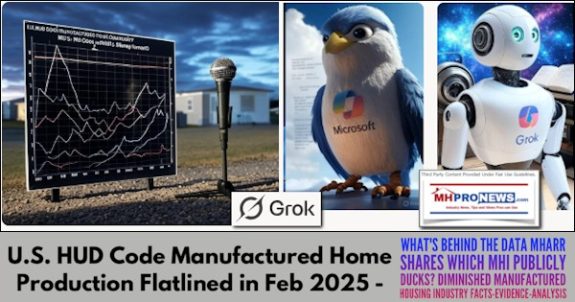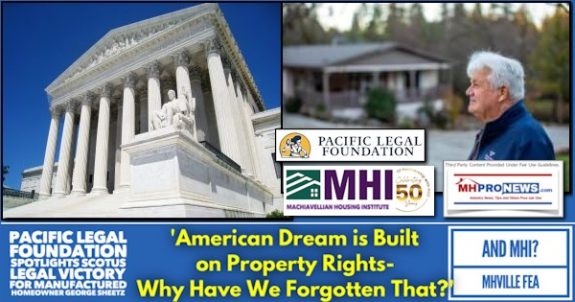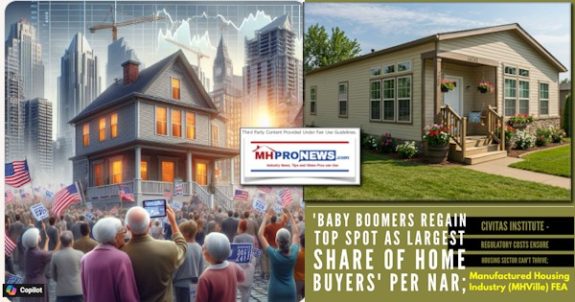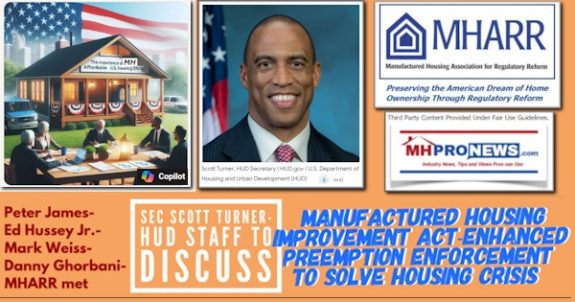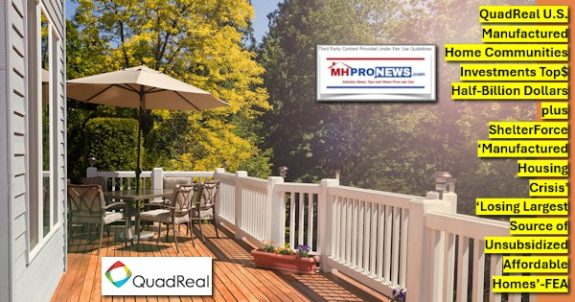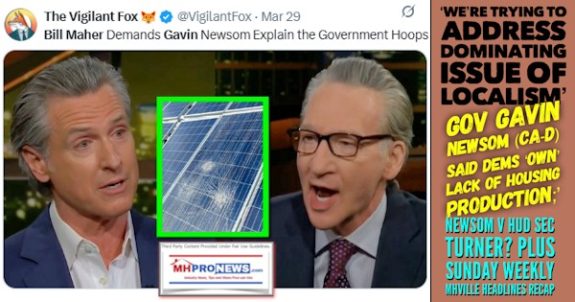Bureau’s findings show potentially significant loss of credit available to consumers and disparate impact of regulations on manufactured housing over site-built counterparts
Washington, DC-On September 30, the Consumer Financial Protection Bureau (CFPB) released its report Manufactured-housing consumer finance in the United States to provide “a comprehensive understanding of manufactured housing and its financing.” The report highlights differences in costs and financing available between the site-built and manufactured housing markets, as well as information on the current regulatory environment for manufactured housing, consumer composition and other economic dynamics.
The Manufactured Housing Institute (MHI) is pleased the CFPB’s report underscores the valuable role manufactured homes play as a key form of affordable housing, particularly in rural and underserved communities. More importantly, the CFPB has finally acknowledged that the Dodd-Frank Act mortgage lending rules have had a disparate impact on manufactured housing compared to the larger site-built housing market. The report specifically states:
The Bureau has recognized that certain provisions of the Dodd-Frank Act the Bureau implemented through rules that took effect in January, 2014, may affect the market for smaller-size mortgages and, more specifically, the manufactured housing segment of the market, in ways that differ from the rules’ effect on other market segments. (1)
CFPB Loan Originator Compensation rules and the Home Ownership and Equity Protection Act (HOEPA) High-Cost Mortgage (HCM) triggers are reducing the amount of credit available to consumers seeking to purchase affordable manufactured housing. The rules are serving to eliminate access to credit and denying many worthy low- and moderate-income families from the chance to purchase an affordable manufactured home.
The smaller size of manufactured home loans, absence of GSE support, lack of lenders offering manufactured home loans, and affordable nature of manufactured homes will cause many manufactured home loans to be unfairly classified as High-Cost under CFPB rules. Because of these factors, CFPB’s own findings indicate that HOEPA’s High-Cost thresholds disproportionately impact manufactured home loans. According to the CFPB, of the loans made in 2012 with rates that that exceed the regulation’s APR limits, more than 94 percent were loans on manufactured homes. (2)
Additionally, we agree with the Bureau’s assessment that consumers might not be fully aware of financing options, and other relevant information, that would be critical to their housing choice. We believe this potentially stems from the lack of clarity in the CFPB Loan Originator rules which prevents manufactured home retailers from providing consumers with essential information relative to making informed housing choices. Retailers and their sales staff receive no compensation from lenders for loan origination activity – compensation only comes from the sale of the home. It is essential that manufactured home retailers remain able to provide information on the forms of financing available to consumers, so that prospective homebuyers are able to make the most informed choice possible.
MHI Chairman Nathan Smith stated “CFPB’s own analysis of manufactured home lending shows that nearly 20 percent (one out of five) of all manufactured home-purchase loans made in 2012 – and potentially more – would have been classified as High-Cost under the current rules. (3) What the CFPB fails to make clear to consumers in this report is that due to their onerous levels of liability, lenders have already ceased to offer any mortgages that could potentially be considered High-Cost and many worthy buyers will be denied the credit needed to purchase a home. For example, most manufactured home lenders have ceased to offer any loan under $25,000 regardless of the consumer’s credit worthiness.”
“In this regulatory environment, low- and moderate-income families are being denied the chance and information needed to own affordable manufactured housing. Preserving access to responsible credit must also be seen as a key consumer protection and the CFPB should be working to increase affordable housing options in this market, not eliminate them,” added Smith.
Manufactured home mortgages, including those secured by personal property (aka, chattel), played no role in the housing market collapse and do not possess any of the characteristics of those that caused the housing downturn. Manufactured home lenders comply with all federal and state mortgage lending and consumer protection laws.
“Despite their own recognition of the impact rules are having on consumer access to manufactured housing, the CFPB is choosing to continue its study of the market and the regulatory impact on it. We are concerned that any further delays by the Bureau to utilize their considerable ability to provide relief will only serve to further erode the already limited financing options that exist for manufactured homeowners. In addition, we welcome the chance to meet with the Bureau to clarify inconsistencies in the report regarding manufactured housing,” said Smith Setting the record straight on manufactured housing
MHI urges Congress to pass the Preserving Access to Manufactured Housing Act (H.R. 1779/S. 1828) that would ensure manufactured home loans, by virtue of their small size and higher costs, are not unfairly categorized as High-Cost. This toxic categorization makes High-Cost Mortgages unmarketable and lenders are unwilling to originate them. Consumers are then left without an option to finance a manufactured home, which often serves as the most affordable and readily available housing choice for families in rural and underserved areas. The legislation does not expand or enhance the lending options available prior to the misapplication of HOEPA rules on manufactured housing loans that have led to a reduction in consumer access to credit. The legislation merely ensures the limited financing options that existed in the marketplace are not entirely eliminated, which ultimately harms consumers.
For more information, contact Jason Boehlert, Senior Vice President of Government Affairs, jboehlert@mfghome.org or (703) 558-0660.
(Editor’s Note: Setting the record straight on manufactured housing)
***
The Manufactured Housing Institute (MHI) is the national trade and industry organization representing all segments of the factory-built housing industry. MHI members include home builders, lenders, home retailers, community owners, suppliers and others affiliated with the industry. MHI’s membership includes 50 affiliated state organizations.
(1) Manufactured-housing consumer finance in the United States, Consumer Financial Protection Bureau (CFPB), September 2014, Pg. 7
(2) IBID, Pg. 34
(3) IBID, Pgs. 32-35




















